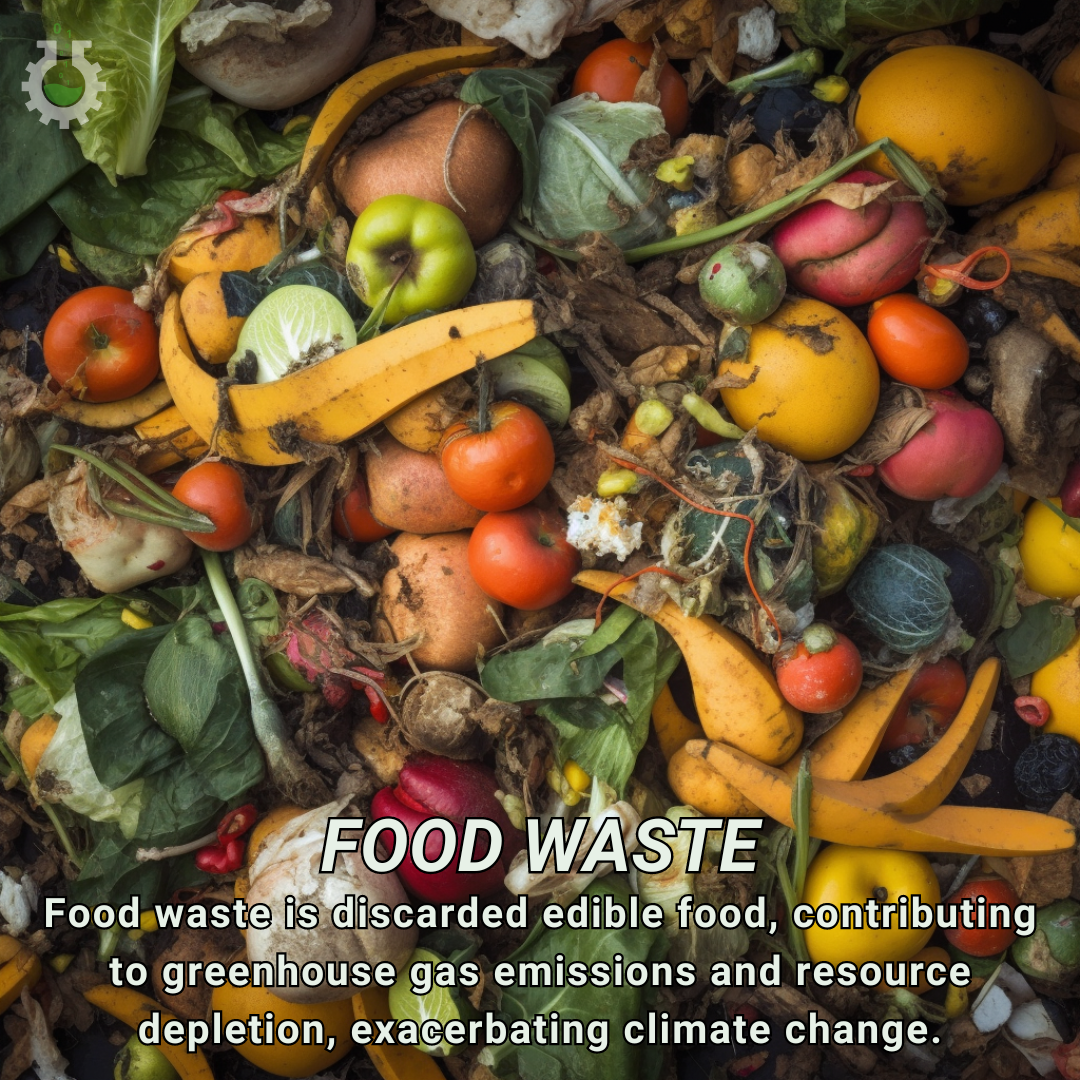May 7, 2024
Climate Change Poster Collection of the Day – Food Waste
Book a Demo
Today’s Climate Change Poster Collection highlights Food waste. A critical issue that has far-reaching consequences for our planet, including its significant contribution to climate change. When we waste food, we are not only squandering valuable resources but also exacerbating the global warming crisis. The production, processing, packaging, and transportation of food all require substantial amounts of water, land, energy, labor, and capital. When food is discarded, all of these resources are essentially wasted, leading to unnecessary greenhouse gas emissions and environmental degradation.
One of the most concerning aspects of food waste is its impact on climate change. When food ends up in landfills, it undergoes anaerobic decomposition, which produces methane, a potent greenhouse gas. Methane is 28 times more effective at trapping heat in the atmosphere than carbon dioxide over a 100-year period, making it a significant contributor to global warming. The United Nations Food and Agriculture Organization (FAO) estimates that if food waste were a country, it would be the third-largest emitter of greenhouse gases, surpassed only by China and the United States.
The connection between food waste and climate change is not limited to methane emissions from landfills. The production of food itself is a significant contributor to climate change, as it often involves deforestation, water consumption, and the use of fertilizers and pesticides. Deforestation, in particular, is a major concern, as forests play a crucial role in absorbing carbon dioxide from the atmosphere. When forests are cleared for agricultural purposes, not only do we lose this vital carbon sink, but the carbon stored in the trees is released back into the atmosphere, further contributing to climate change.
Reducing food waste is essential in mitigating the impacts of climate change. By minimizing the amount of food that ends up in landfills, we can significantly reduce methane emissions and conserve the resources that go into food production. This requires a multi-faceted approach involving individuals, businesses, and governments. At the individual level, adopting sustainable practices such as better meal planning, proper food storage, and composting can help reduce household food waste. Businesses, particularly those in the food industry, can optimize their supply chains, improve inventory management, and donate excess food to charities or food banks. Governments can play a crucial role by implementing policies and regulations that encourage food waste reduction and promote sustainable food systems.
The connection between food waste and climate change is undeniable. By addressing this critical issue, we can not only reduce greenhouse gas emissions and conserve valuable resources but also contribute to a more sustainable and equitable future for all. It is imperative that we take action now to reduce food waste and mitigate its impact on our planet, as the consequences of inaction will be felt for generations to come.
Discover an inspiring collection of climate change poster.



